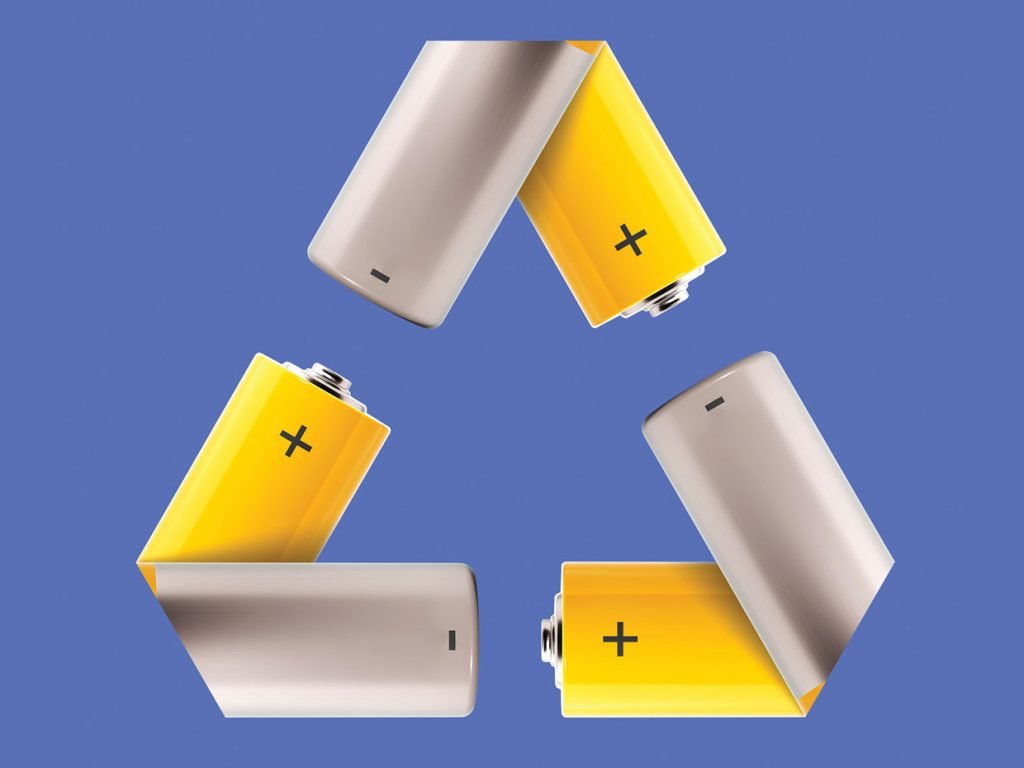The answer is “Yes”. Let’s explore the methods and advantages of 12v lithium battery pack recycling.
The methods of 12v lithium battery pack recycling
Discarded 12v lithium battery pack contain a large number of non-renewable and economically valuable metal resources, for example cobalt, lithium, nickel, copper, aluminum, etc. If the discarded or unqualified lithium batteries can be effectively recycled, it will not only reduce the pressure on the environment, but also avoid the waste of metal resources such as cobalt and nickel.

To recover valuable metals from the discarded lithium batteries, the technical principle is to use hydrometallurgical technology for the separation and recovery of non-ferrous metals, including leaching, solution purification and enrichment, solvent extraction, etc..
Technical route
First pre-treat the discarded lithium batteries
(Including discharge, dismantling, crushing, sorting; recycling of plastic and iron shells after dismantling)
Secondly, the separated electrode materials are subjected to alkali leaching, acid leaching, and impurity removal, and then extraction.
Extraction is a key step to separate copper from cobalt and nickel; copper into the electrowinning cell for electrowinning to produce electrowinning copper; the cobalt and nickel solutions after extraction are then subjected to extraction and separation, and then the cobalt salt is directly obtained after crystallization and concentration. And nickel salt; or the cobalt and nickel separated by extraction into the electro winning tank to obtain the electro winning drill and the electro winning nickel .
The recovery rate of diamond, copper and nickel in the electrode position process can reach 99%, and the grade can reach 99.98%, 99.95% and 99.2%~99.9%. Cobalt sulfate and nickel sulfate products can also meet the national inspection standards.
The use of the wet recycling process has a positive effect on the recycling of discarded lithium battery metal resources. At the same time, the method is clean and environmentally friendly, low cost, high profit, and has a greater competitive advantage in similar methods.
The wet recycling process can also integrate and simplify the process flow, the whole process has low energy consumption and high product recovery rate.
-1024x616.jpg)
The advantages of 12v lithium battery pack recycling
Recycling applications and recycling make lithium cleaner and cheaper
Although lithium-based battery technology has existed for decades, one of its biggest advantages has created obstacles and is changing. The cost of recycling is getting lower, the speed of recycling is getting faster, and reuse is becoming more common. Lithium batteries have always been a viable investment because they have a span-life of 5-9 years. The upfront cost of lithium batteries is generally twice as high, and not everyone needs fast charging.
Between 2018 and 2020, the production of electric vehicles has tripled, the price of lithium has quadrupled, the cost of cobalt has quadrupled, and recycling methods have begun to improve rapidly.
Between 2018 and 2020, the production of electric vehicles has tripled, the cost of lithium has quadrupled, and the cost of cobalt has quadrupled. Batteries have become abundant, and recycling methods have begun to improve rapidly.
.jpg)
The 12v lithium battery pack we use in our warehouses retain approximately 80% of their energy capacity once their service life is over. The exciting thing about the recycling and reuse of lithium batteries is that although they are similar in logistics to other materials (such as vehicles and clothing), the future applications of batteries in forklifts are more flexible. Lithium eliminates the need for a battery charging room, because the operator only needs to plug in the machine, and sophisticated charging equipment can only extract the equipment needed from the grid. High-frequency chargers have several unique and far-reaching advantages. They are smaller, quieter, and dissipate much less heat, so they are extremely efficient. They can also be digitally controlled, which improves battery performance, better reporting and longer life.
Reduce manufacturing costs and protect the environment
We are finding more environmentally ways to reuse 12v lithium battery pack and materials. A new method uses citric acid leaching. It can recover 98% of cobalt and 99% of lithium, leaching 99% of lithium in only 20 minutes at 25°C, and there is almost no waste of solids or water. Before the advent of this process, one of the three major obstacles to large-scale recycling of lithium batteries was time.
The effect that citric acid can achieve in a few minutes may take a whole day. The cost of this substance is about 30% lower than the traditionally acid, and it is organically produced and can be widely used. However, reuse and material recycling have made great progress in a short period of time. With all this in mind, it is not surprising to see an industry expert report that as early as 2019, the recovery rate was as high as 58%. This is a major event for the lithium battery industry. For some operators, the dilemma of lead-acid batteries and lithium batteries will continue for some time. The lithium will be a must.

